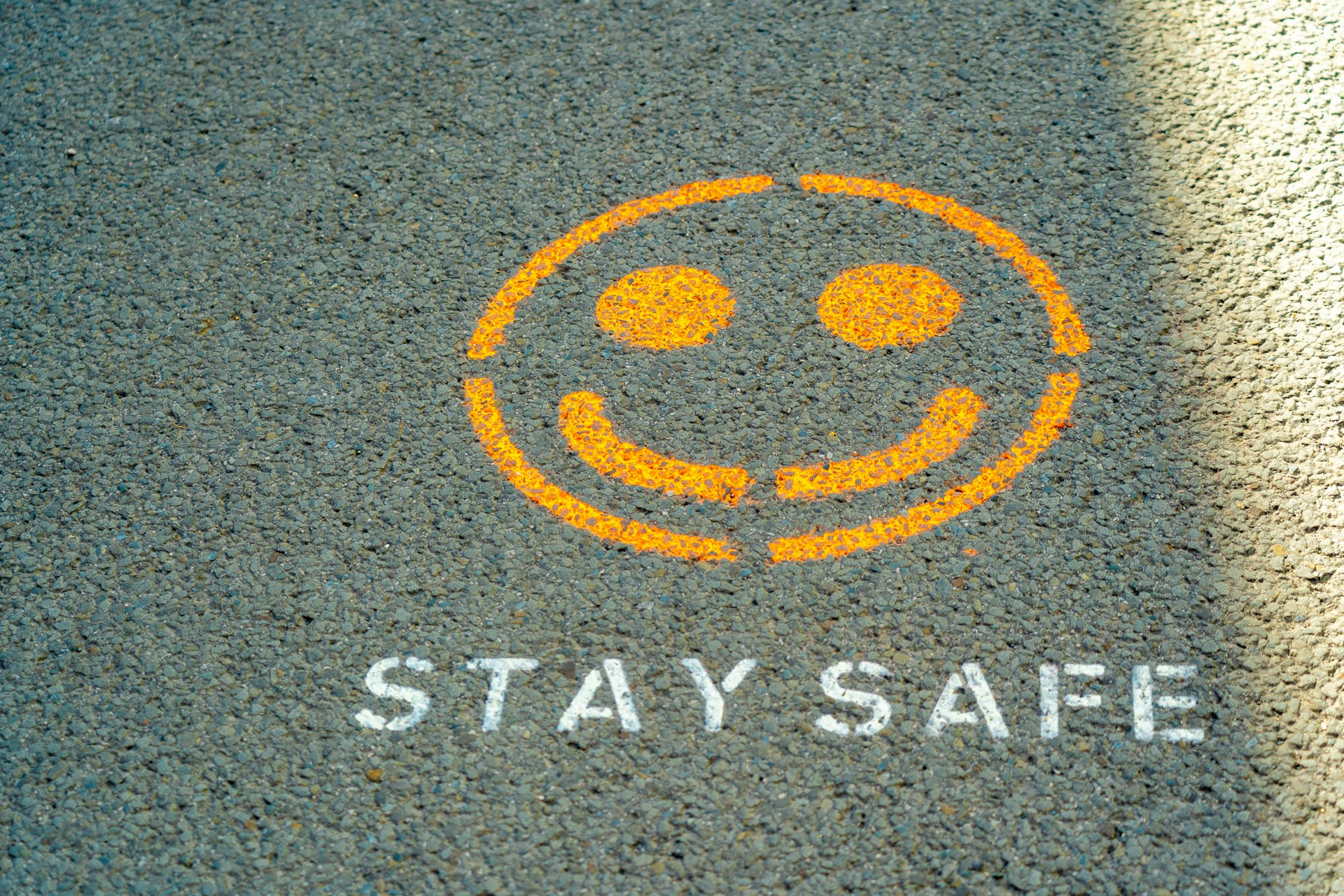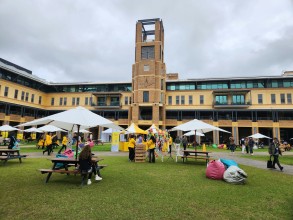News & Blogs
How to Stay Safe While Studying Abroad

Introduction: Why Safety Is Important While Studying Abroad
Studying abroad is an exciting journey that many students want to do and experience, it's so because they get to learn new things, meet people from different countries, and grow as a person, earn much more and help their family financially. But when you’re far from home, to stay safe is very very important there. That’s why learning about study abroad safety to stay safe in aborad is one of the first things every student who dreams of going abroad and studying there should do.
Many international students, especially from Nepal, feel nervous about moving to a new country, especially those who haven’t lived alone as moving there means you will have to live alone without your family and friends who provide security to you. There you may not know the local rules, places, or language well and that’s completely okay and understandable. But to have a safe study abroad experience, it’s always best for you to be prepared firstly. From staying safe on the street to using the internet wisely, all these are part of student travel safety.
For this our Global Education Counselling Centre (GECC) is here to help. Our GECC is one of the top consultancy in Kathmandu and known for helping students with everything from visa documentation, ielts, interview help to safety tips and much more. We don’t just help with visas and universities, we also share important safety tips for Nepali students abroad that will help you to feel more confident in a new place and stay safe.
In this blog, we will share some such tips which will help you to learn how you can stay safe while studying abroad, get a useful safety checklist for studying abroad, and understand how GECC helps students stay safe abroad. These simple but powerful tips can help you enjoy your study journey while keeping yourself protected.
Stay Safe Abroad: Learn About the Country Before You Go

Before you leave Nepal to study abroad and then follow your dream there, it’s very important for you to learn about the country where you will live. This helps you stay safe and feel more confident when you arrive.
Know the Rules and Culture
Every country has different laws and ways of living. What is normal in Nepal, what you do daily and experience daily might not be the same in another country. So learning about the local rules, manners, and customs will help you avoid trouble and show respect to others. This is a key part of study abroad safety and safety advice for students traveling abroad to stay safe there.
Check Health and Political Conditions
Before you go, it's best if you find out if the country is safe in terms of health and politics. Like are there any travel warnings you need to take note of? Are there vaccines you need? These are important things for international student safety that you need to consider. Always check official websites or you can ask our counsellor at Global Education Counselling Centre (GECC).
Register with the Embassy
You can also register with the embassy for a more easier process, many countries allow students to register with their embassy or consulate after they arrive. This makes it easier for them to help you during emergencies. This is one of the best student travel safety tips for 2025 that you should remember to stay safe abroad.
Save Emergency Contacts
Also don’t forget to make a list of local emergency numbers like police, ambulance, and fire department. And also after making this list be sure to keep it properly in your phone and in your bag which you can easily access when needed. Also, know how to contact your university and nearby hospitals. This is an important part of your safety checklist for studying abroad.
How GECC Helps You
Our Global Education Counselling Centre (GECC) gives special training and pre-departure safety tips for Nepali students abroad. GECC helps students understand the country they are going to, including safety rules, culture, and travel advice.
By learning about your new country, you will feel more ready, more confident, and much safer when you start your journey.
Stay Safe Abroad: Stay Safe in Your Daily Life

Before you travel abroad to study, it is also very important for you to learn as much as you can about the country you are going to stay safe there. As knowing about this will help you to stay safe, avoid mistakes, and feel more confident in a new place.
We Global Education Counselling Centre (GECC) always tells students that knowing about your new home is the first step to a safe study abroad experience for students.
Why You Should Learn About the Country you are going to:
- You will know what is safe and what is not, which will help you to be cautious and careful hence possibly saving you from some unfortunate accidents.
- You will understand how people behave, dress, and speak, which will help you to adjust faster there.
- You can avoid doing things that may be rude or illegal, hence making a favourable impression with people there.
- Knowing about your country you are thinking of going is an important part of study abroad safety and student travel safety tips for 2025.
What You Should Research:
1. Local Laws and Cultural Customs
- What are common social rules and manners there that you need to know about?
- Are there any laws different from Nepal (such as rules about alcohol, dress code, or public behavior) which you should note?
- What are the do’s and don’ts in that country?
GECC provides useful guides on cultural behavior for each country to help students prepare.
2. Health and Political Conditions
- Are there any health risks or vaccines that you need to take or be aware of?
- Is the area politically stable and peaceful?
- Are there any travel warnings or places to avoid that you need to be aware of?
This is very important for international student safety.
3. Register with Your Country’s Embassy
- After arriving, register at your country’s embassy or consulate.
- This helps your government find and help you in emergencies like natural disasters or political problems.
GECC includes this in their safety checklist for studying abroad.
4. Know Emergency Contacts
- Be sure to save local emergency numbers like police, ambulance, and fire department, as you won’t even know when you may just need it.
- Write down your university’s address and contact information.
- It’s also best if you know where the nearest hospital or student support services are.
Keep a printed copy in case your phone is lost or runs out of battery.
How GECC Supports You
Global Education Counselling Centre (GECC) is a top consultancy in Kathmandu for safety guidance we help our students to:
- Get updated safety information before they travel.
- Provide pre-departure programs that include study abroad safety tips.
- Help them understand country-specific laws, culture, and safety rules.
- Prepare for health care and travel insurance needs.
Learning about your study destination before you go is not only smart and a good move, it is also a key step to staying safe and enjoying your study abroad journey.
Stay Safe Abroad: Stay Connected and Aware

Staying connected and being aware of your surroundings are very important parts of study abroad safety that you need to be aware of. When you are in a new country, keeping in touch with friends, family, and local communities helps you feel secure and supported. It also helps you stay informed about any risks or emergencies.
Why Staying Connected Matters:
-
It helps others know where you are and that you are safe, hence providing you with another additional layer of security.
-
You can get quick help if you face any problems.
-
You will hear about local news or alerts that may affect your safety.
-
It reduces feelings of loneliness or isolation in a new place, hence reducing homesickness.
Tips to Stay Connected and Aware:
1. Keep Your Phone Charged and Accessible
-
Always carry a fully charged phone with local SIM or international roaming as you may need it in emergencies.
-
Save emergency contacts such as local police, ambulance, university security, and family members.
-
Share your location with trusted friends or family regularly if possible.
2. Join Student Groups and Local Communities
-
Try to participate in university clubs or cultural groups to meet people and make friends.
-
Being part of a group helps you stay socially connected and learn about safe places and events.
-
GECC encourages students to connect with local communities for better support and safety advice.
3. Be Alert in Crowded or Unfamiliar Places
-
Watch your belongings closely, especially in busy areas, markets, or public transport or places that are unfamiliar to you.
-
Avoid isolated places, especially at night.
-
Stay aware of exits and emergency routes during festivals or large events.
4. Save Emergency Contacts in Multiple Places
-
Besides saving numbers on your phone, write them on paper and keep them with you.
-
Know the location and contact details of your country’s embassy or consulate.
-
Keep your university’s international student office contact handy.
By following these safety tips for Nepali students abroad and staying connected, you can stay safe while also enjoying a safer, happier, and more successful study abroad experience.
Stay Safe Abroad: Cyber Safety and Financial Protection

In today’s digital world, staying safe online is just as important as staying safe in the real world, it is especially so when you are studying abroad. International students mostly use online banking, social media, and other internet services, which can sometimes expose them to risks like identity theft or scams so the need to stay safe is hence so important.
Why Cyber Safety Matters for Students Abroad:
- Knowing about this helps to protect your personal information from hackers and fraudsters.
- Prevents financial loss from scams or unauthorized transactions.
- Keeps your online identity and accounts secure.
- Helps you avoid trouble from sharing too much information.
Tips for Cyber Safety and Financial Protection:
1. Be Careful with Online Transactions
- Use secure websites (look for “https” in the URL) for online shopping or banking as those sites are more secure than one with only “http”.
- Avoid making payments or sharing bank details over public Wi-Fi if possible.
- Use trusted payment apps or bank portals recommended by your bank.
2. Protect Your Personal Information
- Don’t share sensitive details like your passport number, address, or bank info on social media.
- Be cautious about friend requests or messages from strangers online.
- Use strong, unique passwords for your accounts and change them regularly.
3. Monitor Your Bank and Credit Card Accounts
- Set up alerts to notify you of any suspicious activity or large transactions.
- Check your bank statements regularly for unknown charges.
- Immediately report lost or stolen cards to your bank if it happens.
4. Use Antivirus and Security Software
- Install trusted antivirus software on your devices to block malware and phishing attacks.
- Keep your operating system and apps updated to protect against security vulnerabilities.
How GECC Supports Student Cyber Safety
Global Education Counselling Centre (GECC) which is one of the best consultancies in Kathmandu for student safety, provides:
- Guidance on how to stay safe online before and during your study abroad journey.
- Advice on protecting your financial information and identity from scams.
- Information on local laws and safe internet practices in your study destination.
By following these cyber safety tips and protecting your finances, you can focus on your studies and enjoy your time abroad with peace of mind while you also stay safe.
Conclusion: Smart Habits for a Safer Study Abroad Journey
Staying safe while studying abroad is very important for every student. By learning about your destination, staying connected with friends and family, being careful in daily life, and protecting yourself online as well as offline, you can enjoy a worry-free and successful study abroad experience.
Global Education Counselling Centre (GECC) is always ready to help students with important study abroad safety tips and support for them to stay safe abroad. We will guide you on how to stay safe, how to make smart decisions, and how to prepare well before you travel.
Remember, safety is not just about avoiding danger—it’s about building smart habits like staying informed, being aware, and trusting your instincts. With these habits and the right support from GECC, your study abroad journey can be safe, happy, and full of great memories




